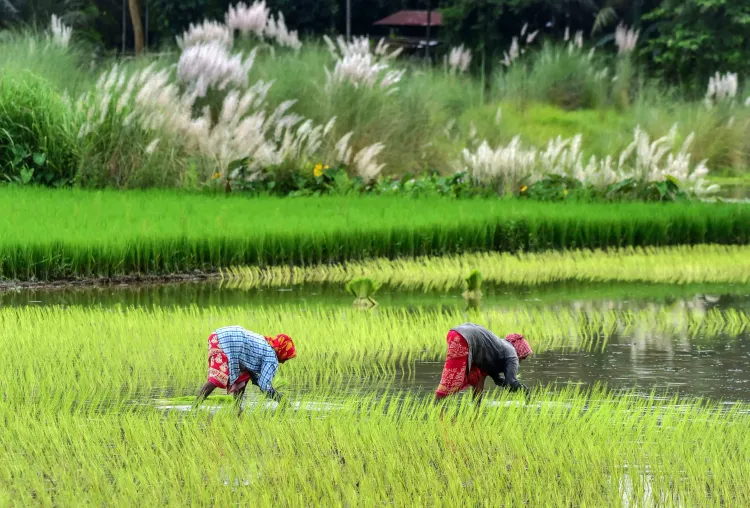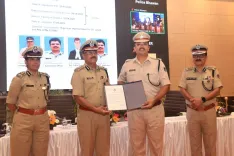Budget 2025-26 Provides Significant Support to Agriculture as the 'Primary Engine of Growth'

Synopsis
Key Takeaways
- Agriculture recognized as the primary growth engine.
- Makhana Board to be established in Bihar.
- National Mission on High Yielding Seeds launched.
- Agricultural district program targeting 100 districts.
- New Gene Bank with 10 lakh germplasm lines.
New Delhi, Feb 1 (NationPress) Finance Minister Nirmala Sitharaman emphasized agriculture as the primary engine for India’s growth trajectory while unveiling various initiatives in the Budget 2025-26 aimed at enhancing farm output and boosting farmers' incomes.
She announced the establishment of a Makhana Board in Bihar to enhance the production, processing, value addition, and marketing of makhana (fox nut). The Board will also aid individuals involved in these processes by organizing them into Farmer Producer Organizations (FPOs). Additionally, it will offer training and support to makhana farmers, ensuring they benefit from all pertinent government schemes.
The Minister revealed that a National Mission on High Yielding Seeds will be initiated to bolster the research framework, focusing on the development and distribution of high-yield, pest-resistant, and climate-resilient seeds, along with commercial availability of over 100 seed varieties introduced since July 2024.
Under the Prime Minister Krishi Yojana, a new agricultural district program will be launched in collaboration with states, targeting 100 districts characterized by low productivity, moderate crop intensity, and poor credit metrics. This initiative aims to support 1.7 crore farmers.
Furthermore, to assist both public and private sectors with genetic resources while ensuring future food and nutritional security, a second Gene Bank containing 10 lakh germplasm lines will be established.
The Finance Minister also introduced a 6-year mission aimed at achieving self-sufficiency in pulses, focusing on tur and masoor. Central agencies like NAFED and NCCF will be prepared to procure these three pulses from farmers who register and sign agreements with them. This initiative will unfold over the next four years, providing support and assured procurement for farmers.
During the announcement of the Mission for Cotton Productivity, FM Sitharaman stressed that this five-year mission will lead to significant advancements in cotton farming productivity and sustainability, promoting extra-long-staple cotton varieties. She claimed the mission would benefit numerous cotton farmers by providing top-tier science and technology support. Aligned with the government’s integrated 5F vision for textiles, this mission will also enhance farmers' incomes while guaranteeing a consistent supply of quality cotton for revitalizing India’s traditional textile sector.
Recognizing the crucial role of Kisan Credit Cards (KCC) in facilitating short-term loans for around 7.7 crore farmers, fishermen, and dairy farmers, the Minister announced an increase in the loan limit under the Modified Interest Subvention Scheme from Rs 3 lakh to Rs 5 lakh for loans obtained via KCC.
In addition, FM Sitharaman declared the construction of a urea plant with an annual capacity of 12.7 lakh metric tons in Namrup, Assam. This development will further enhance urea supply and contribute to achieving Atmanirbharta in urea production, alongside the reopening of three dormant urea plants in the Eastern region.









